The Danish Bone Medicine Society, DKMS, was founded in 1975 by the leading members of the bone and calcium metabolic research community in Denmark. The aim of the DKMS is to strengthen and coordinate national research in bone and calcium metabolic diseases and to house relevant meetings for its members.
Denmark is organized into 5 regions, each region is in charge of running the public hospitals in the given region. Every region has at least one University hospital, that acts as a tertiary center for that region. Some of the University hospitals house the national center for rare bone diseases. The board includes the president, the society secretary, the treasurer and 4 board members. It has been the board’s wish that all five regions are presented on the board. The president is elected for a 4 year period, and the current president is Pernille Hermann, working as an consultant and head of research at the osteoporosis clinic at Odense University Hospital.
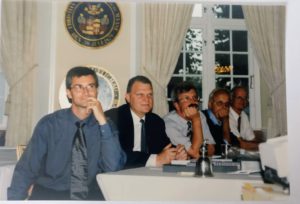
There are approximately 180 members of the DKMS, mostly clinicians from all specialties dealing with bone and calcium metabolic diseases but also a number of basic scientists. In Denmark most patients with osteoporosis and other calcium and bone metabolic diseases are seen by an endocrinologist, that is why most of the members are endocrinologists.There are also a substantial number of rheumatologists in the DKMS. We have a large allied healthcare personnel affiliation of DKMS, where both nurses, physiotherapists and lab technicians participate. All of the society meetings are open for all members and non-members who have a special interest in the meeting’s topic. The allied healthcare personnel meet under the DKMS umbrella in a professional network called OSTEONET. Currently one of the organizers of the OSTEONET meetings are on the DKMS board of directors.
One focus of DKMS is to educate professionals and promote knowledge about bone and calcium metabolic diseases. This is done by participating in the development of national treatment guidelines, seeking political influence by participating in workgroups to improve treatment of different bone and calcium metabolic diseases.
Furthermore, DKMS hold two annual meetings, usually with focus on one disease or research field. The meetings try to combine basic, translational and clinical research and often include talks from international speakers. The meetings are held in collaboration with one of the four university cities on a not set schedule but based on the willingness of the members to plan and hold such a meeting. This ensures that centers with special interests can plan a meeting that will showcase the center and include the newest research results.
Last year, 2017, DKMS held its first annual Danish Bone Research Workshop, a three day workshop located in beautiful surroundings at Sandbjerg Castle far from everywhere in Denmark. Thus forcing the participants to stay at the venue after the program ended and continue their discussions in a more relaxed environment sharing good food, wine and good stories. The overall purpose of this workshop is to ensure cross-regional and interdisciplinary collaboration. Furthermore, the workshop program tried to look at different topics from a basic researcher and clinical researchers point of view in the same session, underlining the need for collaboration and the presence of common ground. Funding for research and funding continuous education of our members have become quite difficult over the last years. The DKMS is trying different methods to promote broader collaborations and better research questions to ensure that the members of the DKMS can keep producing quality research and thus new knowledge for our members.
DKMS sponsors young investigator’s participation in European Ph.d- and training-courses. Society members have previously organized a 3 day course for junior doctors in early training in collaboration with a Pharmaceutical Company, to try to spur interest in the bone and calcium metabolic field. This type of activities are however currently threatened by government regulation of industry involvement in postgraduate education.
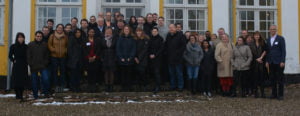
DKMS have a strong relationship with ECTS. In 2007 The ECTS annual meeting was held in Copenhagen. Professor Bente Langdahl have previously been the president of DKMS before her stint as the ECTS President. We currently have members in many of the working groups in ECTS and Professor Bo Abrahamsen, the previous president of DKMS, is a board member of the ECTS board of directors. Professor Abrahamsen has served on the program committee for the ECTS annual meetings for several years.
DKMS would be happy to welcome any Physicians, dentists, veterinarians or other personnel that want to promote bone and calcium metabolic research and work as a member. Application through the secretary (currently: Lars.Folkestad1@rsyd.dk). If you want to read more about the DKMS, please follow the link to the official website (In Danish): www.dkms.dk. We encourage you follow us on twitter @knoglemedicinsk
The activities of the committees and their action groups are coordinated by the ECTS secretary with support from the ECTS team, Roberta Mugnai and Rosemary Oduor. Action groups have regular interactions via email and/or telephone conference. Face to face meetings are taking place during the annual congress. The inaugural meeting took place during this year’s ECTS annual congress in Valencia on 26th of May 2018
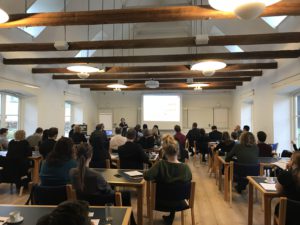

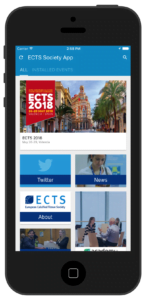 Download the app now and explore ECTS new mobile platform!
Download the app now and explore ECTS new mobile platform!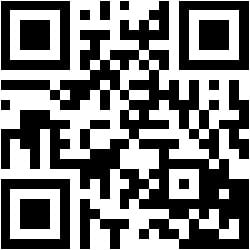 Android
Android 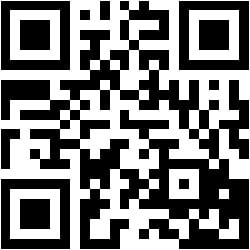 iOS
iOS